- Home
- Vicki Delany
A Scandal in Scarlet Page 2
A Scandal in Scarlet Read online
Page 2
He didn’t rise to the bait. “You didn’t see or hear anything else?”
“Nothing. I saw no one, I heard nothing out of place other than the fire itself. I called nine-one-one the moment I realized what was happening. I knocked on the door, in case anyone was inside, a vagrant who’d fallen asleep or something like that. The door was locked, and no one answered. The firefighters arrived and I left.” I studied his face. “You don’t look overly concerned about this, so I’ll assume no one was inside.”
He shook his head. “No. And we’re pretty sure it wasn’t arson.”
I sipped my tea. “Have you had breakfast yet? I can do scrambled eggs, and I bought some sausage from the farmer’s market on Monday.”
“I’d like that,” Ryan said.
Violet, who hadn’t yet had her breakfast, barked in agreement.
* * *
By the time Ryan left, it was time for me to get ready for work. Ashleigh had texted to say she was feeling better and would be at work today as scheduled. I was very pleased to hear it.
At five minutes to ten, I went into Mrs. Hudson’s Tearoom for a muffin and another cup of tea. Uncle Arthur and I own half of the business, and Jayne Wilson, who serves as the manager and head baker, owns the other half.
“Morning, Gemma,” Fiona said from behind the counter when it was my turn to be served.
“I’m glad to see you back,” I said. “Feeling better?”
“Much. Did you hear about the fire last night?”
“I did.”
“If you have a minute, Jayne wants to talk to you. She told me to send you in.”
“Thanks.” I accepted a raspberry muffin, always my second choice. Apparently the Great Blueberry Crisis was not yet resolved. I went through the swinging doors into Jayne’s domain. By now I knew the picture of total chaos that greeted me was anything but. Jayne knew what she was doing and always did it with competence and efficiency. Occasional moments of complete panic don’t last long. Yesterday’s near meltdown had been a rare event. I might be a partner in the business, but at this side of the counter I’m very much a silent partner. A kitchen, of any sort, is not a place in which I feel entirely comfortable.
Unless I’m eating some of Jayne’s baking, that is.
“What’s up?” I said.
A lock of blond hair had escaped its net, and Jayne brushed it out of her eyes with a flour-dotted hand. At the moment she was stirring pale yellow batter in the industrial-sized mixer. Jocelyn, her assistant, rolled out pastry and cut it into small circles to make the base for miniature fruit tarts. Loaves of bread for lunchtime sandwiches and trays of scones to be served at afternoon tea were cooling on racks. Something fragrant was about to come out of the oven.
Heaven, I sometimes thought, must smell like Jayne’s kitchen.
“Did you hear about the fire last night at the museum down by the harbor?” Jayne asked.
“I did.”
“No one was hurt, thank heavens—not even the animals—but the house suffered a lot of damage.”
“Much of their fabulous old furniture was destroyed,” Jocelyn said. “Some of it dated from the seventeenth century.”
“I don’t have much time,” I said. “I have to open the store. What do you want to talk about?”
“My mom’s a volunteer at the museum,” Jayne said.
“Of course she is.” Leslie Wilson was a West London stalwart. Any committee to do with the promotion of arts and culture in town, Leslie would be on it.
“The museum committee had an emergency conference call meeting this morning. They need to raise funds to repair the house and restock what was lost.”
“They move fast.”
“That they do. Mom said they’re going to move the educational programs into the barn and the back fields in the meantime, but they’re determined to reopen the house as soon as possible.”
“Very admirable. Dare I ask why you’re telling me this?”
“It’ll cost money, Gemma. A lot of money. The museum’s important to the town. It attracts visitors, visitors who then shop on Baker Street.”
“Or have afternoon tea,” Jocelyn added.
“I know that,” I said. “I’d be happy to make a donation.”
“Mom says they’re planning an auction as a start,” Jayne said. “They’re going to ask all the shops to donate something.”
“I can put in a basket of books.”
Jayne was thirty-two, the same age as me, short and thin and extremely attractive with soft blond hair, a heart-shaped face, good cheekbones, and perfect skin and teeth. She hefted the bowl of batter in her arms. She was a lot stronger than she looked. While she talked, she scooped sticky globs of batter into prepared cake tins. “Think bigger, Gemma. Much, much bigger.”
I tried to think bigger. The Emporium was primarily a bookstore. We specialized in the Sherlock Holmes canon and modern pastiche novels and story collections, as well as nonfiction about the life and times of Sir Arthur Conan Doyle and historical novels set in the gaslight era. As well as books, we sold a wide variety of Holmes-related merchandise and things to do with the many TV shows and movies about the Great Detective. I didn’t deal in anything truly collectable, except the occasional second edition Holmes book or damaged first.
“Maybe Arthur can think of something,” Jayne said.
“I’ll ask. What are you giving?”
She turned to me with a grin. Oh no. “We’ve agreed to host the auction here, at the tearoom.”
“We have, have we?”
“Yes, Gemma. We have.”
Chapter Three
Before I could contact Great-Uncle Arthur for some suggestions as to what we could donate to the museum fund-raiser, he called me.
Arthur might be cruising in the Mediterranean, but his vast network of retired ladies and gentlemen kept him fully apprised of everything that went on in West London. When I say he’s cruising, I don’t mean he’s on a giant ocean liner with a swimming pool and billiard room, linen table napkins, and crystal glasses. I mean a twenty-five- or thirty-foot sailboat controlled by him and one or two of his old navy pals. Uncle Arthur had spent his career in the Royal Navy, eventually becoming master and commander of a battleship. To say the sea was in his blood would be an understatement. More like the sea was Arthur Clive Doyle’s blood.
“How’s the weather over there?” I asked him.
“Spot of rain the other day,” he replied in his deep, rolling voice, capable of issuing orders in the face of a category-five hurricane. The “spot of rain” might have been a storm of the strength that blew Odysseus off course. “We put into Palma de Majorca to fix a small problem.” The “small” problem might have been a downed mast or a shredded hull. Great-Uncle Arthur typified English understatement.
“Estelle Johnson emailed to tell me the museum committee is in need of items to be donated for their fund-raiser,” he said.
“That’s right. I’m thinking a basket of books from the shop.”
“We can do better than that, Gemma. Scarlet House is a vital component of the West London tourist business.”
“What do you have in mind?” I asked.
“The Valley of Fear.”
“Are you sure? That’s your favorite book.”
“All the more reason to let it find a new home for a worthy cause. Can you take care of that, my dear? The book is on the shelf in my room.”
“Will do.”
“Love to Violet,” he said, and hung up.
The Valley of Fear my uncle referred to was an original Sherlock Holmes story, the last of the four novels in the Holmes canon, written in 1914. His was a first edition in pristine condition. I hoped it would get what it was worth at the auction. Rare books are only of value to people who value rare books. To everyone else, they’re nothing but old volumes taking up space on the shelf and gathering dust.
* * *
The Sherlock Holmes Bookshop and Emporium is located in a small yellow building with white trim
that started life as a house. The shop itself occupies one room on the ground floor, with furniture and shelving separating the various areas: Sherlock Holmes originals, pastiche, nonfiction, gaslight, young adult, and merchandise. A reading nook with a comfortable chair, side table, and lamp has been set up next to the bay window overlooking the street. A back door tucked under the stairs leads to the alley. All the nonpublic areas of the building are located upstairs: my office, staff washroom, storage rooms. If ever we have to move, I will never again buy a place that requires carrying boxes full of books up and down seventeen steps all day.
It was the height of the tourist season, and we were satisfyingly busy. Otherwise, an uneventful week passed after the fire. On a sunny Thursday afternoon, a few people were browsing the Emporium shelves while Ashleigh helped a customer pick out a book for her granddaughter’s birthday present. She held up Rivals in the City by Y. S. Lee, and the woman said, “That will be perfect, thank you. Plus one of those books with the illustrations done in Legos. Such a clever idea. A great way to introduce young people to classic books.” She was referring to the series of original Holmes stories illustrated by P. James Macaluso.
I glanced at the clock on the wall, next to a framed reproduction of Beeton’s Christmas Annual from December 1887, the first time Sherlock Holmes appeared in print, in A Study in Scarlet.
The clock said 3:38. Time for me to go. Every afternoon promptly at twenty minutes to four, I head into Mrs. Hudson’s for a tea break and my daily partners’ business meeting with Jayne.
“I’m popping next door. Back soon.” I said.
Ashleigh gave me a nod. One of the highlights of my day is seeing what my assistant chooses to wear this time. Ashleigh does far more than change her clothes. She changes her entire persona on a daily basis. Today she’d dressed in a wide-brimmed straw hat, a T-shirt that said “Gardening IS Life” amid a riot of flowers, baggy navy blue capris, and pink-and-purple rubber boots.
She hadn’t done a thing to her face, but she looked at least ten years older than she had yesterday.
I went through the sliding doors that join the Emporium to the tearoom. Jayne was arranging items on the shelves next to the kitchen, where we have a small selection of teas and tea sets and locally sourced preserves for sale. She held a length of pink rope in her hands. “What do you think of this?”
“Not much,” I said. “It’s ugly.”
“Geez Gemma. Don’t say that out loud.”
“Then you shouldn’t have asked me out loud. What is it?”
“A whimsy. A decoration. They’re made by a woman in Brewster, and I bought a couple to see if they sell.” She looped one end of the rope over a nail in the top shelf. It was about five feet long; a series of miniature teacups had been tied by their handles into the rope at regular intervals. Jayne secured a second “whimsy” to the other end of the shelf. I peered at the price tag. “Fifty dollars?”
“Handmade, Gemma. By a local artist.”
“You never can tell what some people will buy,” said the woman who sold “I am SHERlocked” mugs and life-sized cutouts of Benedict Cumberbatch.
“Mom’s here,” Jayne said. “She wants to talk to us.”
Leslie Wilson sat at the table in the window alcove, the one where Jayne and I like to have our meeting, if it’s free. A woman I hadn’t met, but whom I recognized from around town, was with her. She wore the small scarlet badge that was the emblem of the museum pinned to her shirt. Leslie waved at me, and I headed toward them. The chimes over the door tinkled as a group left.
The tearoom closes at four. Three tables, other than ours, were still occupied. Fiona brought out a plate of scones along with tiny pots of butter, clotted cream, and strawberry jam for a table for two. A larger group of six sun-bleached, laughing women, shopping bags piled in heaps around them, poured out the last of their tea. In the back corner, a young couple gazed intently into each other’s eyes while their tea went cold and their pastries remained uneaten.
Jayne and I slipped into our seats, and Jocelyn put a teapot in the center of the table. Today’s choice was Darjeeling.
“Gemma,” Leslie said. “I don’t think you’ve met Kathy. Kathy Lamb, Gemma Doyle. Kathy’s the chair of the Scarlet House board and is in charge of the auction.”
“Pleased to meet you,” we said in unison. Kathy was in late middle age and recently divorced, judging by the slight tan line on the ring finger of her left hand. Judging by the dark circles under her eyes and the angry lines radiating out from the corners of her mouth, she was also still bitter about it. I’d seen her around town a few times over the years. In the past, her hair, now a brittle blond, had been brown streaked with gray, and her makeup had been middle-class New England subdued. Now it was what I’d call angry: lipstick a sharp red line, eyes outlined in fierce black. She had, probably to her dismay, put on a good stone, fourteen pounds, recently—another indication that the divorce had not been her idea and that a young lover, or at least a new lover for Mr. Lamb, had been responsible for the breakup of her marriage. I suspected the lawyers had been expensive, and even if the settlement had gone in her favor, it had not left her in a comfortable position. Her clothes were several years out of date, showing signs of wear, and they no longer fit properly with the weight she’d put on. She didn’t have the money, or the desire, to buy anything new.
I’ve been learning from Jayne not to tell people what I know about them. She says they don’t like that, and so I refrained from offering Kathy my sympathies. Instead, I handed her a page I’d printed from a book collector’s catalog. “This will give you some idea of the potential value of the book we’re contributing and should help you set the opening bid price.”
“Thank you so much,” Kathy said. “This is very generous of you, and it’s bound to fetch a handsome sum.”
“It’s not mine,” I said, “but a gift from my great-uncle Arthur. He’s away at the moment, so he won’t make the auction.”
“Be sure and thank him for me. And Jayne, thank you for offering to host our little event.”
“It’s our pleasure. Isn’t it, Gemma? Gemma?”
“What? Oh yes. It’s our pleasure.”
“We’ll be sending everyone a tax receipt for their donation,” Leslie Wilson said.
“I hope you understand,” Jayne said, “that I can’t manage a full afternoon tea in July for the numbers you expect. It’s the height of the season.” She waved her hand to indicate the tearoom. “We open at seven in the summer and by four o’clock my staff and I want to drop where we’re standing.”
Jocelyn brought us a selection of tea sandwiches and pastries. One of the benefits of being part owner of a tearoom is that I get to indulge in the leftovers.
“The cream tea your mother and I discussed will be fine,” Kathy said.
Jayne nodded. “We can prepare scones ahead of time, right, Gemma?”
I dared, perhaps foolishly, to hope that we didn’t include me. “Right,” I said.
“With only two choices of tea,” Jayne said. “English breakfast plus a decaffeinated option, things won’t get too complicated.”
“That way attendees can concentrate on what’s important,” Leslie Wilson said. “Bidding at auction.”
“Are you getting some good things?” Jayne asked.
“Oh yes,” Leslie said. “Everyone has been so generous.”
“Almost everyone,” Kathy muttered.
Jayne and I exchanged glances.
“People have donated what they can afford, and that’s all I expect,” Kathy said. “Only one person flatly said no to my face.”
“Maureen won’t help at all?” I asked.
Kathy gave me that look. The one people get when they think I’ve read their mind. I don’t read minds. I simply observe.
And yesterday I had observed Kathy coming out of Beach Fine Arts, located across the street from me at 221 Baker Street. It had been a gorgeous Cape Cod summer day, but a personal thundercloud might have hung
over Kathy’s head as she marched out of the store and down the street. Maureen Macgregor, proprietor, followed her out and stood in the doorway, watching Kathy tapping her foot angrily as she waited for the light at the intersection to change. Nothing out of the normal had been visible on Maureen’s face. Her expression of sneering disapproval was so fixed, it was likely Maureen slept with it. Community spirit was not her strongest point. She didn’t bother to decorate the street in front of her shop with flowers or potted plants, but instead dragged them over from the adjoining properties under cover of darkness.
“She had the nerve to tell me she doesn’t see why she should be out the price of one of her goods because the museum was foolish enough to try to burn itself down.” Fire blazed in Kathy’s eyes at the memory. “As if she and her store aren’t a part of this community.”
I selected a cucumber-and-cream-cheese sandwich, my favorite.
“Speak of the devil,” Jayne said. “Incoming.”
As if our talk had summoned her, the door swung open, the chimes tinkled, and Maureen Macgregor marched into the tearoom. She often arrives minutes before closing, expecting a discount on the last of the day’s baking. Jayne had long ago told her staff Maureen was to pay full price, but Maureen never stopped asking. I suspected that when Jayne or I weren’t around, the women gave in just to make her go away.
“Good afternoon, Maureen,” I said cheerfully. “How nice to see you today.”
She grunted in her usual manner. “Must be nice,” she said, “to be able to sit around talking and having high tea in the middle of the business day.”
“High tea?” I said for the umpteenth time. “We don’t serve high tea here. We serve afternoon tea. High tea is a working-class evening meal, whereas afternoon tea—”
“Whatever. I’m surprised you two are still in business, the way you carry on.” Jayne and I were seated at chairs pulled up to the table, facing the door. Leslie and Kathy had taken the bench seats tucked into the window alcove. Kathy snorted, and Maureen noticed her for the first time.

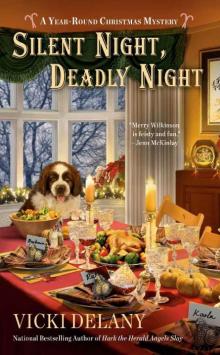 Silent Night, Deadly Night
Silent Night, Deadly Night Coral Reef Views
Coral Reef Views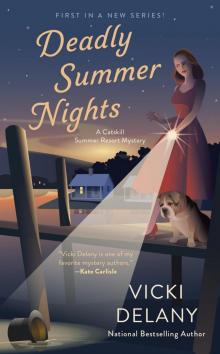 Deadly Summer Nights
Deadly Summer Nights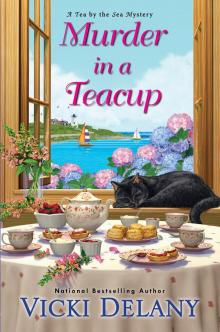 Murder in a Teacup
Murder in a Teacup Whiteout
Whiteout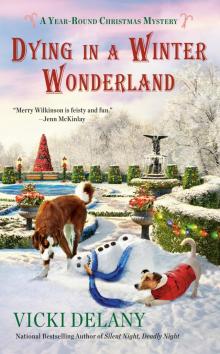 Dying in a Winter Wonderland
Dying in a Winter Wonderland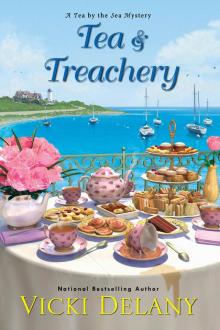 Tea & Treachery
Tea & Treachery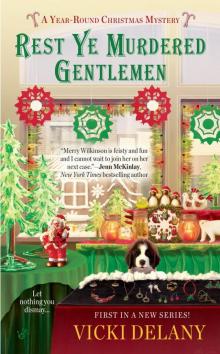 Rest Ye Murdered Gentlemen
Rest Ye Murdered Gentlemen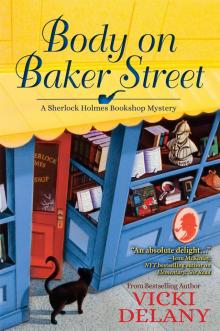 Body on Baker Street: A Sherlock Holmes Bookshop Mystery
Body on Baker Street: A Sherlock Holmes Bookshop Mystery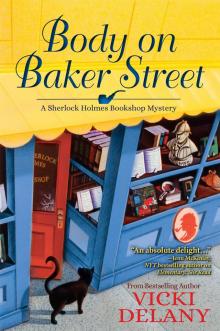 Body on Baker Street
Body on Baker Street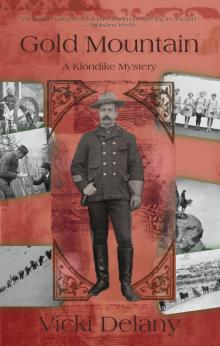 Gold Mountain
Gold Mountain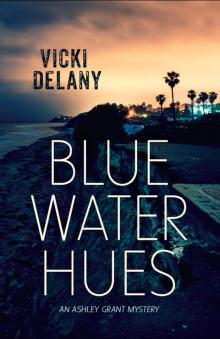 Blue Water Hues
Blue Water Hues Hark the Herald Angels Slay
Hark the Herald Angels Slay Murder at Lost Dog Lake
Murder at Lost Dog Lake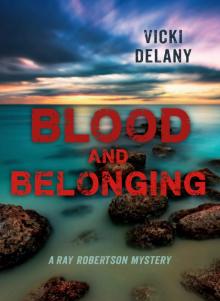 Blood and Belonging
Blood and Belonging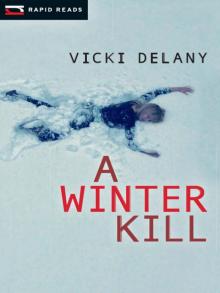 A Winter Kill
A Winter Kill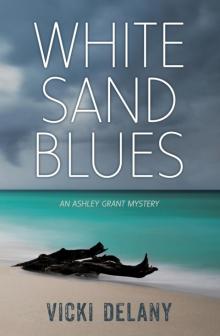 White Sand Blues
White Sand Blues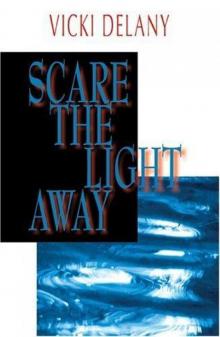 Scare the Light Away
Scare the Light Away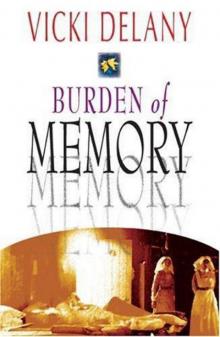 Burden of Memory
Burden of Memory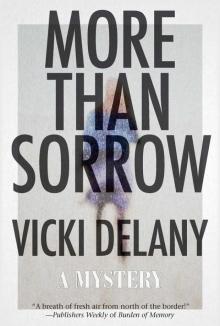 More Than Sorrow
More Than Sorrow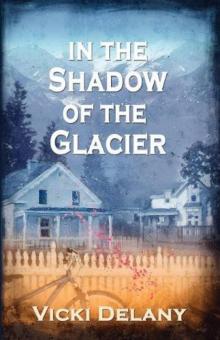 In the Shadow of the Glacier
In the Shadow of the Glacier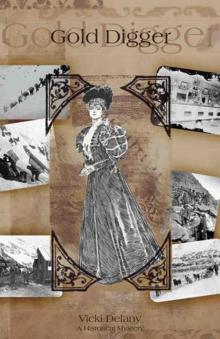 Gold Digger: A Klondike Mystery
Gold Digger: A Klondike Mystery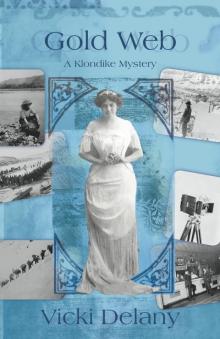 Gold Web
Gold Web Haitian Graves
Haitian Graves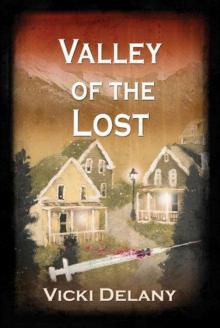 Valley of the Lost
Valley of the Lost We Wish You a Murderous Christmas
We Wish You a Murderous Christmas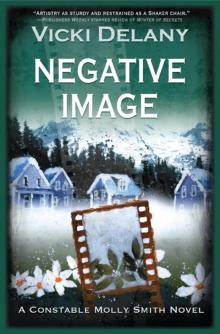 Negative Image
Negative Image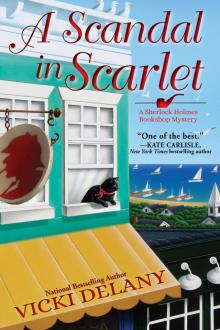 A Scandal in Scarlet
A Scandal in Scarlet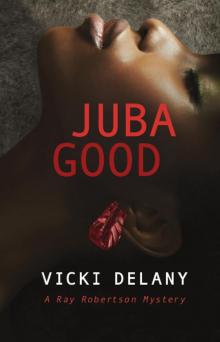 Juba Good
Juba Good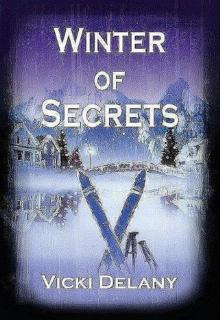 Winter of Secrets
Winter of Secrets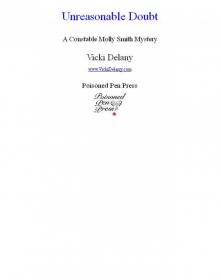 Unreasonable Doubt
Unreasonable Doubt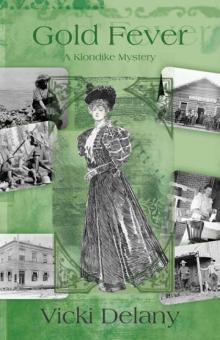 Gold Fever
Gold Fever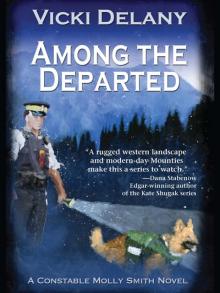 Among the Departed
Among the Departed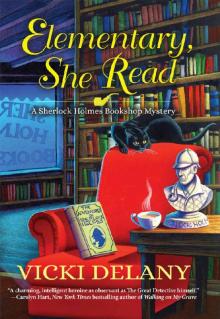 Elementary, She Read: A Sherlock Holmes Bookshop Mystery
Elementary, She Read: A Sherlock Holmes Bookshop Mystery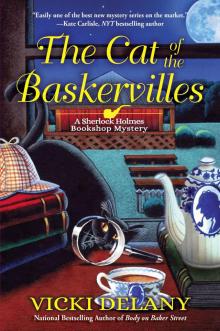 The Cat of the Baskervilles
The Cat of the Baskervilles